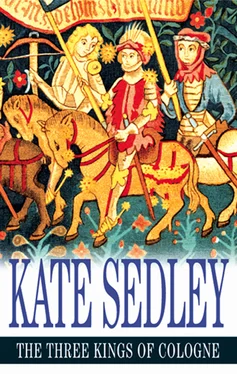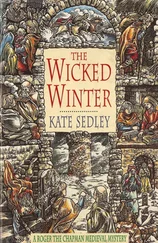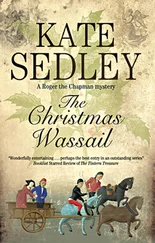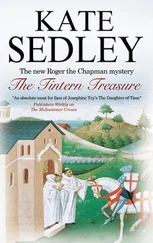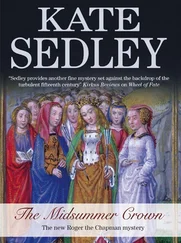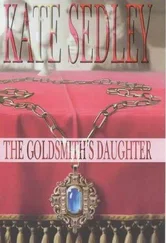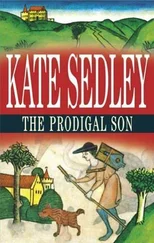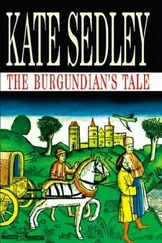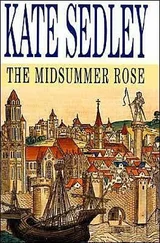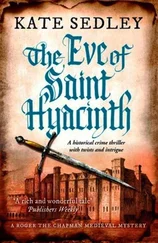Kate Sedley - The Three Kings of Cologne
Здесь есть возможность читать онлайн «Kate Sedley - The Three Kings of Cologne» весь текст электронной книги совершенно бесплатно (целиком полную версию без сокращений). В некоторых случаях можно слушать аудио, скачать через торрент в формате fb2 и присутствует краткое содержание. Жанр: Исторический детектив, на английском языке. Описание произведения, (предисловие) а так же отзывы посетителей доступны на портале библиотеки ЛибКат.
- Название:The Three Kings of Cologne
- Автор:
- Жанр:
- Год:неизвестен
- ISBN:нет данных
- Рейтинг книги:5 / 5. Голосов: 1
-
Избранное:Добавить в избранное
- Отзывы:
-
Ваша оценка:
- 100
- 1
- 2
- 3
- 4
- 5
The Three Kings of Cologne: краткое содержание, описание и аннотация
Предлагаем к чтению аннотацию, описание, краткое содержание или предисловие (зависит от того, что написал сам автор книги «The Three Kings of Cologne»). Если вы не нашли необходимую информацию о книге — напишите в комментариях, мы постараемся отыскать её.
The Three Kings of Cologne — читать онлайн бесплатно полную книгу (весь текст) целиком
Ниже представлен текст книги, разбитый по страницам. Система сохранения места последней прочитанной страницы, позволяет с удобством читать онлайн бесплатно книгу «The Three Kings of Cologne», без необходимости каждый раз заново искать на чём Вы остановились. Поставьте закладку, и сможете в любой момент перейти на страницу, на которой закончили чтение.
Интервал:
Закладка:
He was lying. I could tell it by the tremor in his voice, which he strove valiantly to keep steady, and by the rogue tear that had escaped and was running down one cheek. But I could understand his reluctance to dwell, publicly at least, on the gruesome discovery of his daughter’s corpse. He must blame himself, and also feel that others blamed him, for not making more effort to trace her whereabouts twenty years ago. Had he done so, her true fate might have become known, with a far better chance of bringing the murderer to justice.
I rose to take my leave of him, but the sight of Miles Huckbody and Henry Dando loitering near the door made me pause and risk asking yet another question.
‘Master Linkinhorne,’ I ventured, ‘the jewellery your daughter was wearing — the rings, necklace and girdle by which your cousin was able to identify the body as Isabella’s — was it familiar to you?’
He shook his head.
‘No. Sergeant Manifold brought it to show me, but I’d never seen any of it before. Obviously,’ he added bitterly, ‘Jeanette — Sister Walburga — recognized it.’
‘Sister Walburga told me it was given to Isabella by one of her admirers, who was a goldsmith by trade.’
The old man gave vent to a sudden explosion of furious laughter.
‘Then my cousin knows far more than I do. Far more! You’d better go and talk to her again.’
I could see that he was trembling, his left hand jerking uncontrollably against the tabletop. Guilt consumed me. I leaned forward, once more pressing his shoulder.
‘I’ll leave you in peace now, Master Linkinhorne. Thank you for your time and patience.’
He made no reply. I’m not sure that he even heard me. I pushed past Miles Huckbody and Henry Dando without looking at them, resolutely ignoring their whispered questions and muttered indignation when I didn’t answer. Then I was out in the fresh air of the April afternoon, breathing pleasurably and deeply, but possessed by the uneasy reflection that one day I, too, would be old.
Five
I walked home through the April afternoon with a growing sense of unease; but by the time I approached the Frome Bridge I had managed to pinpoint at least three causes of my discomfort.
Firstly, I had never before used my talent to make money; never allowed my services to be hired. I had solved mysteries for many people, but always maintained my independence, supporting myself, Adela and the children by my efforts as a pedlar while sorting out those God-sent problems; problems which usually — I’m too modest to say always — resulted in some wrong-doer being brought to justice. Once, the Duke of Gloucester had sent money after me, but it had only supplemented what I had managed to earn for myself and, although undeniably welcome, it had not been vital to my or my family’s survival. Now, however, I had broken my golden rule and was living on John Foster’s bounty while I did my best to unravel the puzzle of who had killed Isabella Linkinhorne. I had established a precedent. And that worried me.
The second thing disturbing my peace of mind was something I suppose I had always secretly acknowledged, but considered it as yet too early in life to face up to: the difficulties, the clash of wills that inevitably arose between parents and children as they all grew older. Jonathan and Amorette Linkinhorne’s relationship with their daughter had plainly been an extreme one, but it demonstrated the depths of misunderstanding — indeed of total alienation — that could develop through selfishness and pride on the one hand, and deep-seated resentment and rebellion on the other. I knew that both Adela and I were unusual in our concerns for our offspring; that many people, including Margaret Walker, regarded us as lax preceptors because we spared the rod and, in their eyes, spoiled the child. I even worried about it myself, sometimes. And although I often, loudly and forcefully, expressed contrary views and made threats that I, and everyone else, knew I had no intention of carrying out, I doubted if Adela and I would ever reach such a state of wilful ignorance concerning our children’s doings as the Linkinhornes had with Isabella.
Finally, there was the thought of old age itself, provided either disease or disaster failed to carry me off before my allotted three score years and ten; the expectation of diminished eyesight, impaired hearing, creaking joints and incontinence. (And although the reality hasn’t proved to be quite as bad as I had anticipated, there is still the shock of waking up each morning and realizing that my tomorrows are numbered.)
So I crossed the Frome Bridge to the gateway feeling thoroughly despondent, glancing up at the great keep of the castle where it brooded over the town, hanging in the sun-threaded air like some fairy palace. Only it wasn’t a fairy palace, but rather a place of darkness and misery, suffering and despair. In stark contrast, from the chapel of Saint John-on-the-Arch floated the voices of children singing, a little ragged at the edges but with a heart-rending purity of sound, bringing hope and comfort and joy to everyone who heard them. The thin spring sunlight sent grey and silver shadows rippling across the surface of the water; and the small stone customs house that stood near the river reminded me of a pebble washed up by the tide.
Edgar Capgrave was still on duty at the gate, and still arguing, this time with the stream of homeward-bound visitors who were objecting to the toll on goods being taken out of the city.
‘I don’t make the laws, mother!’ he was bellowing at a deaf woman with a basket of goods weighing down her frail old arms. ‘Them’s Bristol goods for Bristol people you’m squirrelling away to your hidey-hole in the country. So course you’ve got to pay a toll! It’s only right and proper.’
‘I’m not your mother!’ the crone screeched in reply. ‘I just wish I were! You’d feel the weight of my fist! Such incivility to a poor, defenceless old woman!’
Once again, I left Edgar to it and went home for my supper — only to find myself faced with a domestic crisis.
‘The night-soil man hasn’t come today,’ was Adela’s greeting. ‘The privy’s full to overflowing. You’ll have to do something about it, Roger. We can’t have turds being trodden all over the yard.’
‘Turds!’ shouted Adam, beaming all over his bread-and-milk-spattered little face and waving his spoon at me.
Wonderful! Cleaning out the privy was just what I needed before tackling my rabbit stew. But it wasn’t the first time I’d had to do the night-soil man’s job for him. He seemed to be constantly going sick. Perhaps it was genuine. Either way, who could blame him?
When I’d finished — in the absence of the night-soil man’s horse and cart, transferring the privy contents to the street’s central drain — Adela shooed all three children upstairs while I sat naked in the old wooden tub in front of the kitchen fire and she poured pitchers of alternate cold and hot water into it until I was covered to my waist. Then she scrubbed my back, laughing and wrinkling her nose at the disgusting smell of the clothes I had dropped on the floor. One thing very nearly led to another, but the patter of feet up and down the stairs reminded us that it was far too early in the evening for any kind of dalliance. So Adela found me a clean shirt and my only other decent pair of hose and, when I had got out of the tub, set about soaking the offending garments in my bath water. While all this was going on, and I was rubbing myself dry on the piece of rough sheeting we kept for that purpose, I took the opportunity to tell her about my conversations with Sister Walburga and Jonathan Linkinhorne.
‘What I don’t understand,’ Adela said, as she laid the kitchen table with plates and spoons for supper, ‘is how Isabella’s body came to be buried in that plot of ground if, as everyone insists, it had never been used as a graveyard. Digging a grave, even a shallow one, can’t be easy. And that spot is near enough to both the nunnery and Saint Michael’s church that anyone doing so would surely have been bound to attract attention at some point in the proceedings. Even under cover of darkness, you’d think that someone would have seen or heard something at some time.’
Читать дальшеИнтервал:
Закладка:
Похожие книги на «The Three Kings of Cologne»
Представляем Вашему вниманию похожие книги на «The Three Kings of Cologne» списком для выбора. Мы отобрали схожую по названию и смыслу литературу в надежде предоставить читателям больше вариантов отыскать новые, интересные, ещё непрочитанные произведения.
Обсуждение, отзывы о книге «The Three Kings of Cologne» и просто собственные мнения читателей. Оставьте ваши комментарии, напишите, что Вы думаете о произведении, его смысле или главных героях. Укажите что конкретно понравилось, а что нет, и почему Вы так считаете.
